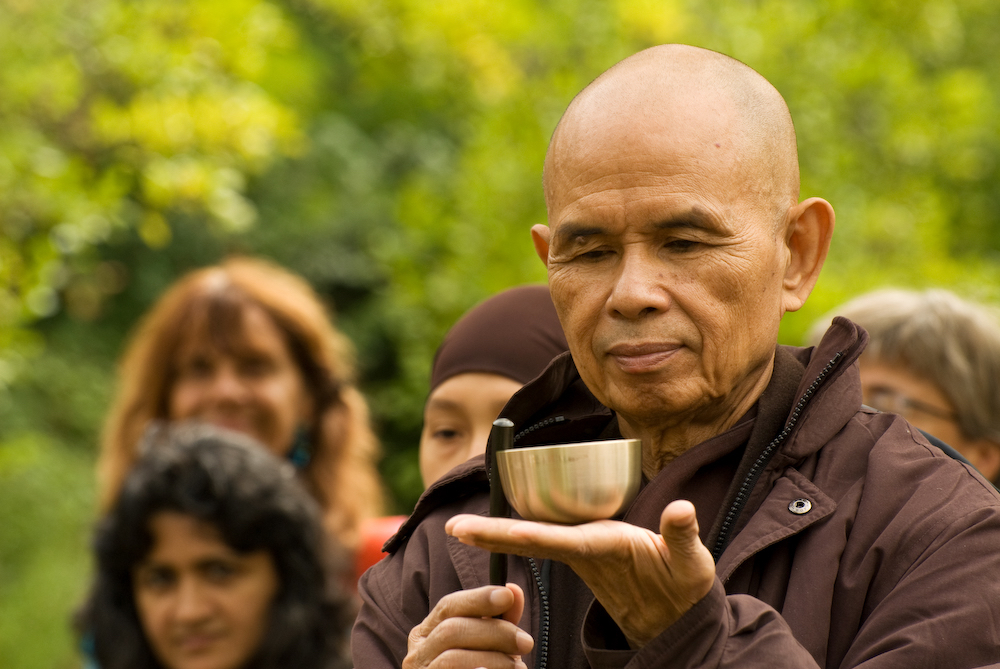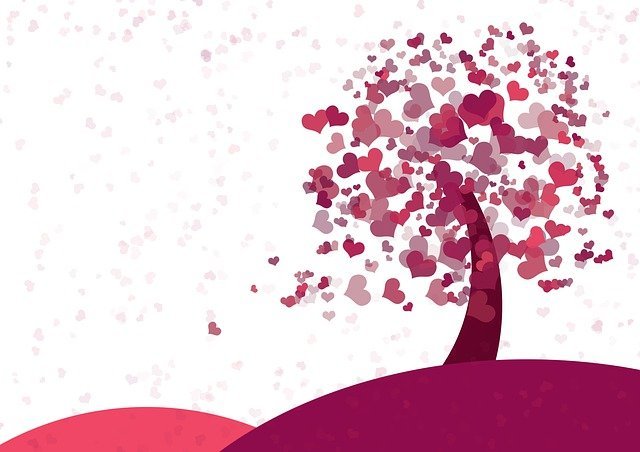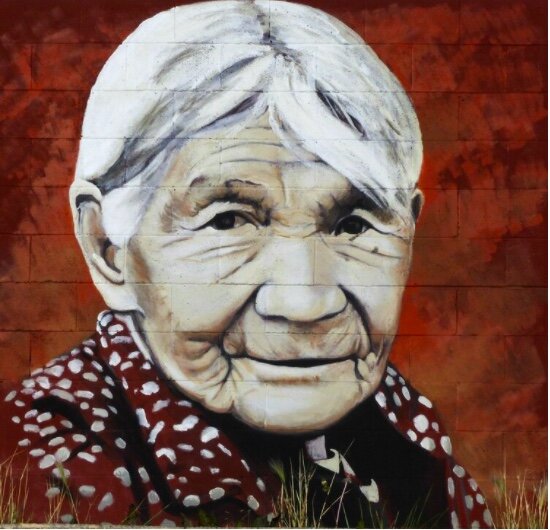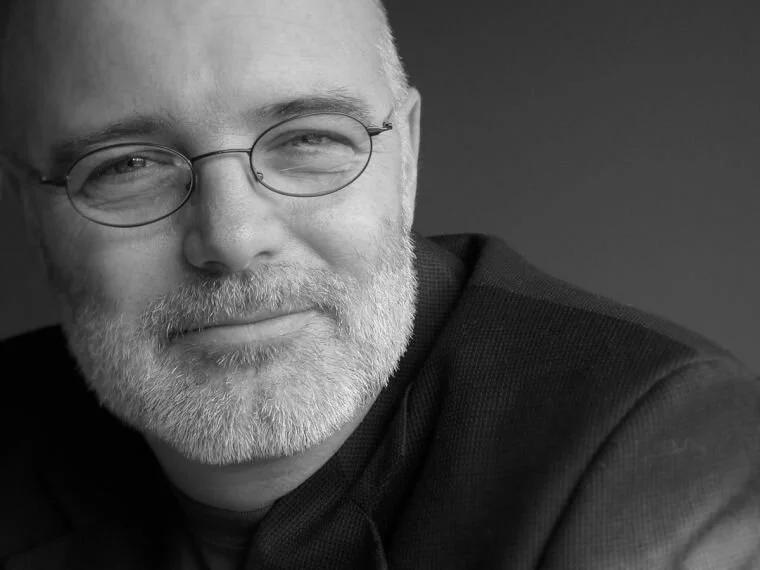
Tao Te Ching (Chapter 2) — a Commentary by Galen Pearl
The second chapter of the Tao Te Ching introduces two themes: non-duality and wu wei.
Non-duality
The first part of the chapter illustrates the nature of non-duality with a list of complementary qualities which we often see as opposites, showing that our perception of these qualities comes from their manifestation into being. So, for example, we know the manifestation of beauty because of ugliness, and the manifestation of kindness because of unkindness.
BE A SUPPORTER OF THE “NO WAY CAFE”

Tao Te Ching (Chapter 1) — a Commentary by Galen Pearl
Over the following months I will make available to my readers a wonderful, insightful and practical set of commentaries based on select verses within given chapters of the Tao Te Ching. This fine interpretive work is crafted by author, teacher and student of the Tao, Galen Pearl. Like dazzling sea glass scattered along a shoreline, Ms. Pearl’s commentary wisdom shines throughout all 81 chapters. Her good work has aided and inspired me in my own trek into the human drama called Life. I thoroughly honor her heart, dedication and immense love for truth. She is a gift to us all!
Galen will be publishing all 81 chapters of commentary sometime during the 2022-2023 calendar years. I’ll keep you all posted on that release date.
INTRODUCTION
The Tao Te Ching is an ancient Chinese text consisting of spiritual teachings, folk wisdom, political instruction, cosmology, observations of nature, anti-Confucian doctrine, and mystical insights…
BE A SUPPORTER OF THE “NO WAY CAFE”

“The Life Story of Thich Nhat Hanh” presented by Plum Village
Zen Master Thich Nhat Hanh is a global spiritual leader, poet, and peace activist, renowned for his powerful teachings and bestselling writings on mindfulness and peace. A gentle, humble monk, Dr. Martin Luther King, Jr. called him “an Apostle of peace and nonviolence” when nominating him for the Nobel Peace Prize. Exiled from his native Vietnam for almost four decades, Thich Nhat Hanh has been a pioneer bringing Buddhism and mindfulness to the West, and establishing an engaged Buddhist community for the 21st Century.

“Original Sin and Karma” by Seán ÓLaoire
Introduction: In the play, Hamlet, an officer in the Palace Guard famously opined, “Something is rotten in the State of Denmark.” If he had been more aware of the human condition in general, he might have said, “Something is rotten in the state of the world.” And, indeed, it is. This issue of human vicissitude is probably the most oft-treated theme in world literature. The writers of all scriptures get into it; so do the philosophers, metaphysicians, psychologists, playwrights, novelists – and Calvin and Hobbes. And I’ve had a shot at it myself. I’ve looked at it through the twin lenses of karma and original sin, in these four brief essays.

“The Openness that Holds It All” by Amoda Maa
The innocent longing to come home – what we call the spiritual search – is so often hijacked by an unconscious psychological agenda for comfort and perfection. Along with the desire to end the suffering created by ego’s tenacious story-telling comes a hope that this ending means we no longer have to feel what we don’t like to feel.

“ The Taoist Christian — following Jesus in a gentle and creative way” by Bruce Epperly and Jay McDaniel
The emerging church in the West – the church of spiritual seekers who seek to share in the journey of Jesus but not impose it on others -- is already Taoist in tone. What remains is for participants in this new and emerging church to turn eastward, learning from Asian Christians and the cultural traditions they bring with them, and thus learning to gentle their enthusiasm with the humility of stardust. What remains is for them to realize that one of the best ways to “proclaim the gospel” is not to proclaim at all, but rather to travel a path of gentleness, which is its own proclamation, its own good news.

“Fact is, Universal Love has no Recognition of Hierarchies” by Terri Kozlowski
Universal love doesn’t recognize egoic made hierarchies of humanity. Here is how to move from ego-based love to unconditional love of the soul.
Being fearless by loving others doesn’t sound like it would be complicated. We all want to be loved. The ego does all kinds of crazy things to get others to love us. But the fact is, love by its nature has no recognition of hierarchies. What do I mean by this, love is love. We have, as human beings, altered the meaning of what love is. Over time we have accepted other people’s opinions of what love is and how we are to share it with others, as well as loving certain people more than we do others. This hierarchy, or ranking, isn’t what love is supposed to be.

“Martin Shaw: Remembering Robert Bly” from the Medicine Path Podcast with Brian James
Poet, activist and men's work pioneer Robert Bly died on November 21 at the age of 94. This is part one in a series of conversations with some of the people who knew him intimately.
Martin Shaw is an acclaimed teacher of myth and author of numerous books including his latest, Smoke Hole: Looking to the Wild in the Time of the Spyglass. He founded the Oral Tradition and Mythic Life courses at Stanford University, and is director of the Westcountry School of Myth in the UK.

“Wu Wei – Doing Nothing” - made available by ‘The School of Life’
Wu wei means – in Chinese – non-doing or ‘doing nothing’. It sounds like a pleasant invitation to relax or worse, fall into laziness or apathy. Yet this concept is key to the noblest kind of action according to the philosophy of Daoism – and is at the heart of what it means to follow Dao or The Way. According to the central text of Daoism, the Dao De Jing: ‘The Way never acts yet nothing is left undone’. This is the paradox of wu wei. It doesn’t mean not acting, it means ‘effortless action’ or ‘actionless action’. It means being at peace while engaged in the most frenetic tasks so that one can carry these out with maximum skill and efficiency. Something of the meaning of wu weiis captured when we talk of being ‘in the zone’ – at one with what we are doing, in a state of profound concentration and flow.

“An Argument for Christian Universalism: Why I Don't Believe in an Eternal Hell” by Justin Aptaker
I grew up in an evangelical Christian environment. Over the years, I developed a deep-seated terror of the idea of an eternal hell. Because of this, I eventually suffered a devastating mental breakdown centered around thoughts of my own damnation, and this finally drove me to find new beliefs I had never even anticipated. Today…
SUPPORT THE WORK OF JUSTIN APTAKER

“Spiral Dynamics - A Simplified Outline” by Keith Basar
Approximately two years ago I came across the “integrated model to understand human consciousness,” called Spiral Dynamics. Clearly not the easiest theoretical model to digest, but with time and persistence I’ve gleaned from it new tools to deepen my understanding of human history — specifically, the good and bad of human behavior. The model is no panacea, but it is a fantastic aid in helping to make some sense of an otherwise nonsensical world.

“The Death, Resurrection and Ascension of Religion” by Seán ÓLaoire (Transcript and Video)
In the summer of 1963, in between the end of my junior year in high school and the beginning of my senior year in high school I spent seven months in a little village in West Cork called Cloghroe. Cloghroe is an area in which Gaelic is still the mother tongue. I spent the summer visiting all of the older people in the village and collecting proverbs from them. At the end of the summer I collected 432 proverbs that got published in the school as the little booklet of proverbs. What I learned then was that stories are the archived wisdom of any culture. You want to go to the wisdom of any culture, listen to their stories, their mythology, and if you want to get the the essential distillation of the stories go to the proverbs — these extraordinary one-liners.

"When We Walked with God" by Galen Pearl
The Garden of Eden story fascinates me. I’m going to ask you, just for purposes of this post, to take the story out of Biblical context. Put aside all the theology, all your beliefs and opinions, whatever they are, about the Bible and religion. Just for a few minutes, consider this story without any preconceived notions. Disregard for the moment issues about obedience, sin, and punishment. Please understand that I am not challenging or disrespecting anyone’s beliefs. And I’m not asking anyone to change what they believe. This is just an invitation to look at the story itself without any additional context to see what we notice.
BE A SUPPORTER OF MS. PEARL’S WORK

"Selling Water by the River" by Adyashanti
Many seekers do not take full responsibility for their own liberation, but wait for one big, final spiritual experience which will catapult them fully into it. It is this search for the final liberating experience which gives rise to a rampant form of spiritual consumerism in which seekers go from one teacher to another, shopping for enlightenment as if shopping for sweets in a candy store. This spiritual promiscuity is rapidly turning the search for enlightenment into a cult of experience seekers. And, while many people indeed have powerful experiences, in most cases these do not lead to the profound transformation of the individual, which is the expression of enlightenment.
BE A SUPPORTER OF ADYASHANTI’S WORK

“Lecture on Zen” by ALAN WATTS (transcribed by Alan Seaver)
Once upon a time, there was a Zen student who quoted an old Buddhist poem to his teacher, which says:The voices of torrents are from one great tongue, the lions of the hills are the pure body of Buddha. 'Isn't that right?' he said to the teacher. 'It is,' said the teacher, 'but it's a pity to say so.'It would be, of course, much better, if this occasion were celebrated with no talk at all, and if I addressed you in the manner of the ancient teachers of Zen, I should hit the microphone with my fan and leave. But I somehow have the feeling that since you have contributed to the support of the Zen Center, in expectation of learning something, a few words should be said, even though I warn you, that by explaining these things to you, I shall subject you to a very serious hoax.
If I allow you to leave here this evening, under the impression that you understand something about Zen, you will have missed the point entirely. Because Zen is a way of life, a state of being, that is not possible to embrace in any concept whatsoever, so that any concepts, any ideas, any words that I shall put across to you this evening will have as their object, showing you the limitations of words and of thinking.

“This is Water” — Living a Compassionate Life by David Foster Wallace (full transcript and audio) - Courtesy of Fs Blog
This was David Foster Wallace‘s 2005 commencement speech to the graduating class at Kenyon College. It’s rich in wisdom, insight and heart. It has never been more apropos than now…. The speech was transposed and into book form entitled, “This Is Water: Some Thoughts, Delivered on a Significant Occasion, about Living a Compassionate Life.”

“Indigenous Religious Traditions” — Colorado College
The other day I visited my grandmother at her nursing home in Denver. The lobby of the building was filled with senior citizens, as one would expect in assisted living. Most of the people were in wheel chairs or using walkers and many were sleeping where they sat. As I walked through the building in search of my grandmother, I began to feel a little depressed. The overwhelming presence of people approaching their death gave the building a sad energy, and I felt sorry for each person I passed. But the longer I thought about it, the less I could understand why I felt such grief. I thought about our experience at Pine Ridge and how I viewed the elders there compared to the elders I encountered in this instance. I saw the elders at Pine Ridge as wise and full of knowledge, but I saw the people living with my grandmother as senile and fragile. My differing experiences at Pine Ridge and at the nursing home inspired me to take a deeper look at how elders are perceived in Native American culture versus mainstream American society.
SUPPORT COLORADO COLLEGE

“Choosing Love in a Time of Evil” from the Center for Action and Contemplation
I have been deeply moved by the wisdom of Etty Hillesum (1914–1943) for quite some time, and found myself returning to her journals many times over this past year. She died at Auschwitz at the age of 29, but her deepening relationship with God in the last two years of her life led her into great solidarity with those who suffered and to loving God even in her enemies. Living at the Westerbork transit camp, first as an employee of the Jewish Council and later as an inmate, Hillesum did everything in her power to help others. Here are excerpts of her wisdom:

“Faith after Doubt” by Brian McLaren — a Nomad Podcast Interview with Brian McLaren and Book Notes by Sam Radford
I’ve been reading books by Brian McLaren for coming up to twenty years. He is someone whose faith journey is several steps ahead of mine and, as such, he’s been a mentor from afar to me.
His latest book, Faith after Doubt, is my favourite of his books to date.
=It captures the journey I’ve been on for the last twenty years as well as providing vision and encouragement for the years ahead.
The book offers a map for where I’ve come from. He shares language and frameworks that give definition to the steps I’ve been taking these last two decades.
SUPPORT SAM RADFORD’S BLOG, NOMAD PODCAST & BRIAN MCLAREN’S FINE WORK

Buddha and the Gas Pump — Rick Archer Interviews (excerpt) David Godman on Maurice Frydman
This is a long except from a "Buddha at the Gas Pump" interview with David Godman. I singled out the section pertaining to the life of Maurice Frydman. If there were a human prototype fitting for sainthood Frydman might be a serious candidate.
The interview was conducted by Rick Archer.
Enjoy!
BE A SUPPORTER OF BUDDHA AT THE GAS PUMP

